Hiking: Your ticket to a happier, healthier you
In the whirlwind of modern life, where stress and anxiety seem to be constant companions, it’s easy to feel overwhelmed and disconnected from ourselves. But amidst the chaos, there lies a simple yet profound solution: hiking. There are many mental health benefits of hiking. This accessible and rewarding activity offers a unique blend of physical exertion and mental rejuvenation, making it an invaluable tool for enhancing our overall well-being.
There are many mental health benefits of hiking
Hiking saved my life. It is for this reason that I’m passionate about our wilderness, about building this site, and about this post (it’s a long one). I started hiking to escape from the real world and my own thoughts, to reconnect with nature, switch off from the hustle and bustle of life, and rediscover myself. I hope my journey can help you.
Stress reduction: A tranquil escape
The pressures of daily life can take a significant toll on mental health, leading to chronic stress and its associated negative consequences. Hiking provides a much-needed escape from the daily grind, offering an immersive experience in the calming embrace of nature. Immersion in nature’s tranquility has a profound effect on the body’s stress response system. As we wander through serene forests or ascend breathtaking peaks, our bodies release endorphins, natural mood-boosters that counteract the harmful effects of stress hormones.
Studies have shown that even brief exposure to nature can significantly reduce stress levels. A study published in the journal “Environmental Science & Technology” found that spending just two hours a week in nature led to a significant decrease in cortisol levels, the primary stress hormone.
Anxiety relief: Finding calm in nature
Anxiety, characterised by persistent worry and fear, can significantly impair daily life. Hiking offers a powerful antidote to anxiety, providing a refuge from racing thoughts and overwhelming emotions. The rhythmic movements of hiking, the gentle sway of trees, and the soothing sounds of birdsong create a calming effect on the nervous system, easing anxiety and promoting a sense of tranquility. Studies have shown that regular hiking can reduce anxiety symptoms by up to 50%.
Depression relief: Embracing nature’s rejuvenating power
Depression, a debilitating condition characterised by persistent sadness, loss of interest, and decreased energy levels, can be debilitating. Hiking offers a natural path to alleviating depressive symptoms, fostering a sense of connection and revitalisation. Spending time in nature has been shown to increase levels of serotonin, a neurotransmitter that plays a crucial role in mood regulation. Studies have demonstrated that regular hiking can significantly reduce symptoms of depression, leading to improved mood and increased energy levels.
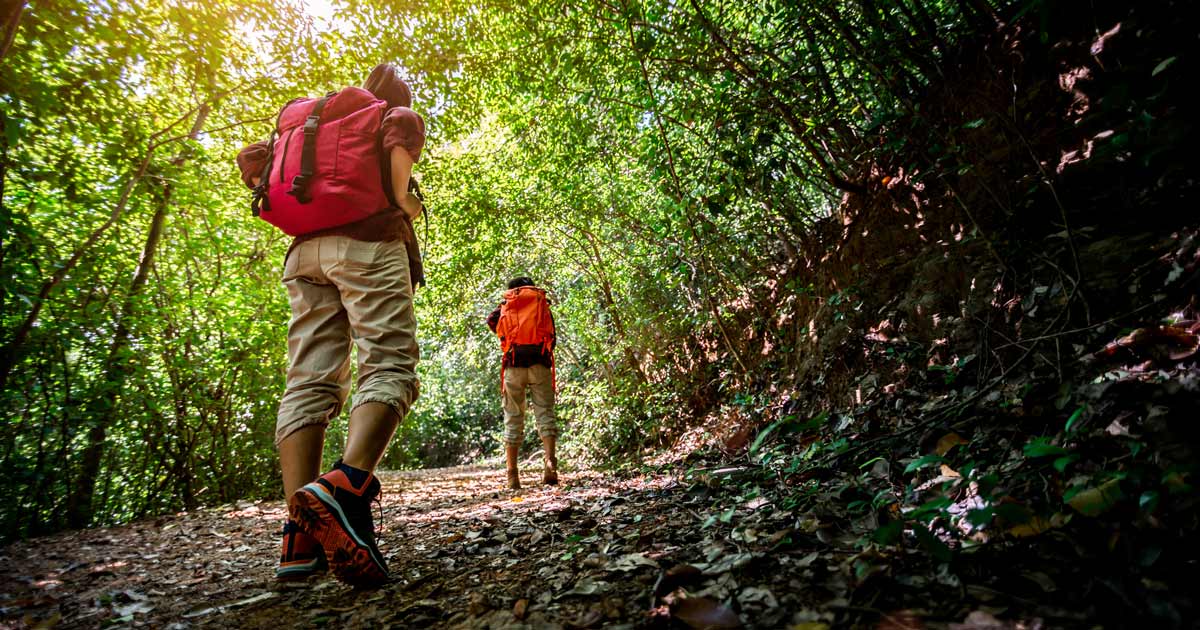
Stepping away from the concrete jungle: Embracing nature
Venturing away from the concrete jungle and immersing ourselves in nature’s embrace is a transformative experience that soothes the mind and body simultaneously. The sights, sounds, and smells of the natural world work in harmony to create a calming effect, reducing stress hormones and promoting feelings of peace and tranquility. The vibrant hues of wildflowers, the gentle rustling of leaves, and the soothing murmur of a nearby stream serve as sensory reminders of the beauty that surrounds us, offering a welcome respite from the sensory overload of daily life.
- The Calming Effects of Nature: Nature has a profound ability to calm our minds and bodies. The sights and sounds of nature have been shown to lower blood pressure, reduce heart rate, and decrease stress hormones. Simply being in nature can help us to feel more relaxed, peaceful, and happy.
- Sensory Reminders of Beauty: The natural world is full of sensory delights. The vibrant colors of wildflowers, the fresh air, and the sounds of birds singing can all help to lift our spirits and remind us of the beauty that surrounds us. Spending time in nature can also help us to appreciate the interconnectedness of all living things.
- A Respite from the Sensory Overload: In our modern world, we are constantly bombarded with sensory stimuli. The noise, pollution, and artificial lights of our cities can take a toll on our mental and physical health. Spending time in nature can help us to detox from the sensory overload and reconnect with the natural world.
- How to Incorporate Nature into Your Life: There are many ways to incorporate nature into your life. Even if you don’t have a lot of time, there are simple things you can do to get your daily dose of nature. Take a walk in the park, sit in your backyard, or simply take a few minutes to appreciate the beauty of the world around you.
Spending time in nature is one of the best things you can do for your mental and physical health. So get out there and enjoy the beauty of nature!
A natural mood booster: Endorphins and beyond
Stepping onto a hiking trail is more than just embarking on a physical adventure; it’s an invitation to embrace nature’s restorative power and elevate your mood to new heights. As your feet tread upon the path, your body engages in a symphony of physical exertion, releasing a surge of endorphins, those feel-good chemicals that act as nature’s very own mood enhancers.
- The Body’s Natural Antidote: Endorphins, your body’s natural painkillers, are the primary catalysts for that post-hike euphoria. These mood-boosting molecules work their magic by binding to opioid receptors in the brain, producing a sense of well-being and reducing feelings of stress, anxiety, and depression.
- The Nature-Mind Connection: While endorphins play a significant role in hiking’s mood-boosting effects, the experience goes well beyond the release of these natural chemicals. The immersion in nature’s embrace has a profound impact on our mental and emotional well-being.
- The Power of Sensory Delights: As we hike, our senses are awakened by the symphony of nature’s sights, sounds, and smells. The vibrant hues of wildflowers, the soothing murmur of a nearby stream, and the gentle rustling of leaves create a sensory tapestry that soothes the mind and uplifts the spirit.
- A Sense of Connection: Hiking not only engages our senses but also reconnects us with nature’s vastness and beauty. The towering trees, the expansive meadows, and the ever-changing landscapes remind us of our place in the grand scheme of things, fostering a sense of awe and wonder.
- Reducing Stress and Promoting Relaxation: The physical exertion involved in hiking not only strengthens our bodies but also serves as an effective stress reliever. As we navigate challenging trails and ascend steep hills, our bodies release endorphins, reducing stress hormones and promoting a sense of calm and tranquility.
- A Sense of Accomplishment: Hiking offers a unique opportunity to challenge ourselves and achieve a sense of accomplishment. Conquering a challenging trail or reaching the summit of a mountain provides a boost of self-confidence and reinforces our belief in our abilities.
- A Mood-Boosting Elixir: In essence, hiking is a natural mood-boosting elixir that combines the physical benefits of exercise with the restorative power of nature. As we immerse ourselves in the beauty of the outdoors and engage in activities that challenge and excite us, we release endorphins, reduce stress, and cultivate a sense of well-being.
A Catalyst for creativity: Unleashing the flow
There’s a reason why some of history’s most creative minds found inspiration in nature. Whether it was William Wordsworth wandering through the English countryside or John Muir exploring the wilderness of Yosemite, the natural world has long been recognized as a muse for artists, writers, and thinkers. And there’s no better way to tap into that creative flow than by heading out for a hike.
- The Tranquility of Nature: When you’re immersed in nature, you’re not just escaping the hustle and bustle of city life; you’re also giving your mind a break from the constant barrage of stimuli that we’re bombarded with every day. The sights, sounds, and smells of the natural world have a calming effect on our brains, reducing stress and anxiety and creating space for new ideas to emerge.
- Unleashing the Flow: That sense of calm and tranquility is essential for creative flow, the state of mind in which ideas come effortlessly and problems seem to solve themselves. When we’re in flow, we’re not actively trying to be creative; instead, we’re simply allowing our minds to wander freely and follow the natural course of thought.
- Physical Activity and Cognitive Function: Hiking also has a positive impact on cognitive function. The physical exertion of walking increases blood flow to the brain, which can help to improve memory, focus, and concentration. Studies have shown that even short bursts of exercise can boost creativity, so a hike can be a great way to get your creative juices flowing.
- A Setting for Problem-Solving: The natural world can also be a great place to solve problems. When we’re surrounded by nature, we’re less likely to get bogged down by our own thoughts and biases. Instead, we can take a fresh perspective and approach problems from a new angle.
- The Benefits of Being in Nature: Hiking is just one way to reap the benefits of being in nature. Spending time outdoors has been shown to reduce stress, improve mood, and boost overall well-being. So next time you’re feeling stuck or uninspired, take a hike and let nature do its magic.
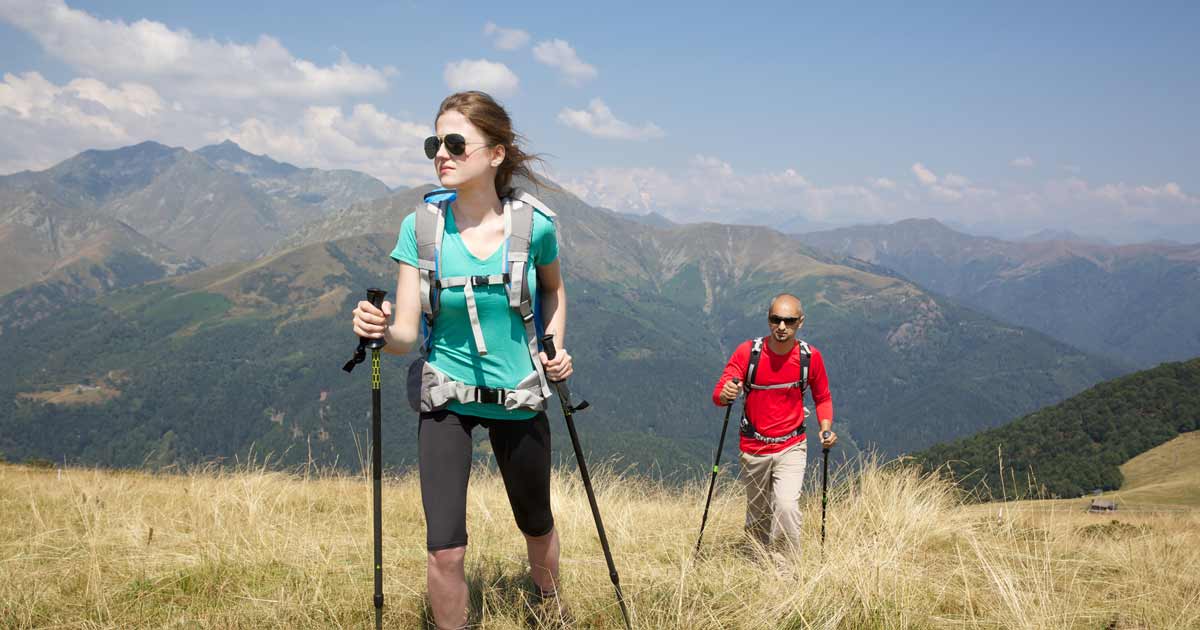
Boosting self-esteem: Conquering challenges, one step at a time
Hiking is more than just an outdoor activity; it’s a journey of self-discovery and personal growth. As we traverse winding trails and ascend rugged peaks, we face physical and mental challenges that push us beyond our perceived limits. Overcoming these obstacles instills in us a sense of accomplishment and self-efficacy that can profoundly impact our self-esteem.
- A Path to Self-Confidence: Each step we take on a hike is a testament to our resilience and determination. We learn to trust our bodies, navigate obstacles, and adapt to changing conditions. With each successful ascent, our belief in our abilities grows stronger, replacing self-doubt with a newfound confidence in our ability to tackle challenges.
- The Summit of Self-Esteem: Reaching the summit of a mountain is a symbolic moment of triumph. It represents not just the physical feat of conquering the peak but also the mental victory over our own self-limiting beliefs. Standing atop the world, we are reminded of our strength, perseverance, and capacity for greatness.
- The Everyday Impact of Hiking: The benefits of hiking extend far beyond the mountain trails. The self-confidence and resilience we cultivate on the trail translate into all aspects of our lives. We approach challenges with a newfound determination, believing in our ability to overcome obstacles and achieve our goals.
- Embracing the Journey: Hiking is a journey of continuous learning and growth. With each hike, we face new challenges, expand our capabilities, and reinforce our belief in ourselves. As we navigate the trails of life, let us remember the lessons learned on the mountain: we are capable, resilient, and capable of achieving great things.
Here’s a few tips for boosting your self-esteem through hiking
- Set realistic goals and gradually increase the difficulty of your hikes.
- Celebrate your accomplishments, no matter how small.
- Focus on the progress you’ve made, not on comparing yourself to others.
- Join a hiking group or find a hiking buddy for support and encouragement.
- Take time to appreciate the beauty of nature and the challenges you’ve overcome.
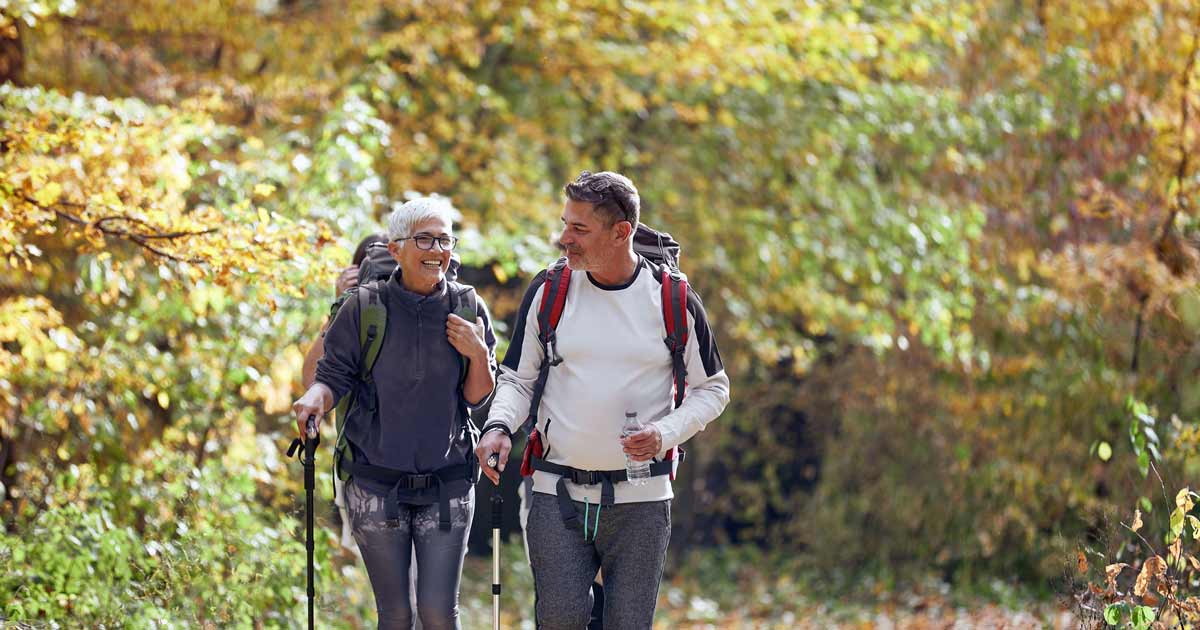
Embrace mindfulness: Being present in the moment
This is something I struggle to do and is something I try to work on every day. In the hustle and bustle of modern life, it’s easy to get caught up in the constant stream of thoughts, worries, and distractions that bombard our minds. We’re constantly planning for the future, dwelling on the past, or multitasking to get everything done. But amidst this chaos, we often lose sight of what’s right in front of us: the present moment.
Hiking offers a unique opportunity to escape the mental whirlwind and immerse ourselves in the present moment. The act of walking itself is a form of meditation, as it grounds us in the here and now. Our feet connect with the earth, our bodies move in rhythm, and our senses are awakened to the sights, sounds, and smells of the natural world.
As we hike, we become aware of the subtle details of our surroundings. The breeze rustling through the leaves, the chirping of birds, the warmth of the sun on our skin – these sensations, often overlooked in our daily lives, come to the forefront of our awareness. We are no longer just passing through the landscape; we are experiencing it fully and mindfully.
Mindfulness isn’t about clearing our minds completely; it’s about acknowledging and accepting our thoughts and feelings without judgment. We notice when our minds wander off to the past or the future, and gently bring them back to the present moment. With practice, we become more adept at staying present, and the benefits extend far beyond the trail.
Practicing mindfulness on hikes can have a profound impact on our overall well-being. It can reduce stress, anxiety, and depression, and promote feelings of calm, gratitude, and inner peace. It can also enhance our creativity, problem-solving skills, and self-awareness.
So, next time you hit the trails, take a moment to slow down and appreciate the present moment. Notice the rhythm of your breath, the feel of the ground beneath your feet, and the beauty of the natural world around you. Let go of the worries of the past and the anxieties of the future, and simply be. You might be surprised at the peace and clarity you find.
Here’s a few tips for practicing mindfulness on your hikes
- Set an intention for your hike. What do you hope to gain from your time in nature?
- Focus on your breath. Notice the rise and fall of your chest, the in and out of your breath.
- Engage your senses. Pay attention to the sights, sounds, smells, tastes, and textures of your surroundings.
- Be mindful of your body. Notice how your body feels as you walk, climb, and descend.
- Don’t judge your thoughts. When your mind wanders, acknowledge it without judgment and gently bring it back to the present moment.
- Be patient with yourself. Mindfulness is a practice, not a destination.
By incorporating mindfulness into your hikes, you can transform your outdoor experiences into profound journeys of self-discovery and inner peace.
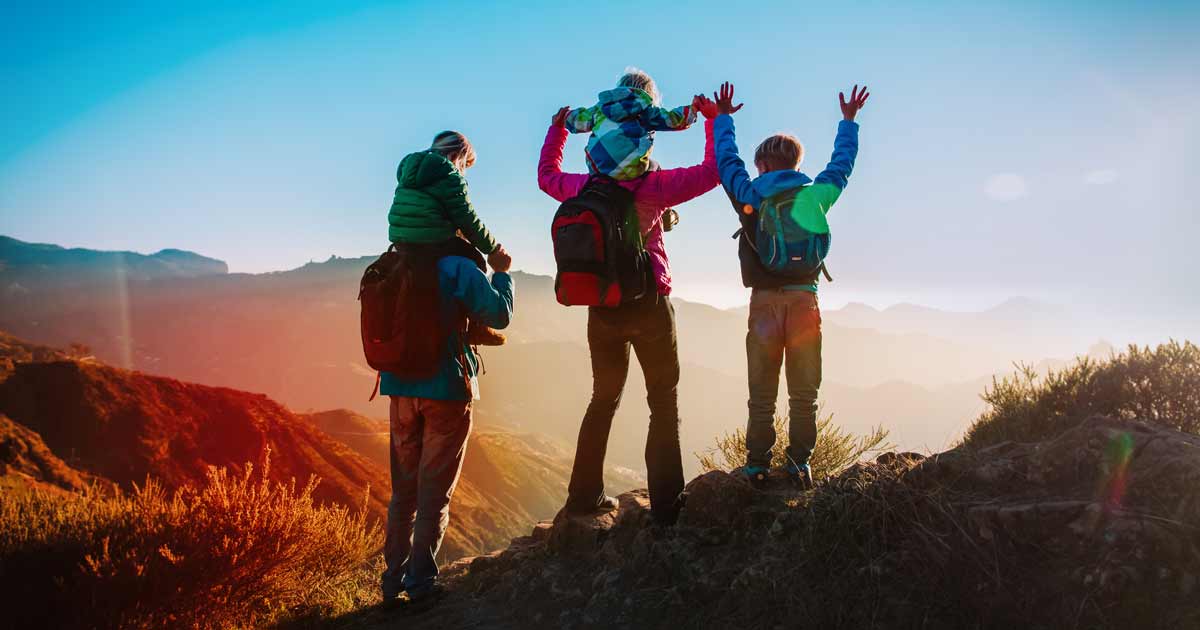
Enhancing cognitive function: A sharper mind for a brighter future
In the pursuit of a healthier and more fulfilling life, we often focus on physical fitness and emotional well-being. However, cognitive function, the ability to think, learn, and remember, is equally important. Our cognitive abilities enable us to navigate the complexities of daily life, solve problems, and pursue our passions. Fortunately, there is a simple and enjoyable way to enhance our cognitive function: hiking.
- A Brain Booster: Regular hiking has been shown to positively impact cognitive function, including memory, attention, and problem-solving skills. This is because hiking increases blood flow to the brain, delivering essential nutrients and oxygen to brain cells. This enhanced blood flow also stimulates the production of neurotransmitters, such as dopamine and norepinephrine, which play crucial roles in cognitive processes.
- Memory Enhancement: Memory is a fundamental cognitive function that allows us to store, retain, and retrieve information. Hiking has been shown to improve memory performance, particularly in older adults. Studies suggest that regular hiking increases the size of the hippocampus, the brain region responsible for memory formation and storage.
- Improved Attention: Attention is the ability to focus on a specific task or object while filtering out distractions. Hiking can enhance attention by increasing the production of dopamine, a neurotransmitter that plays a crucial role in focus and concentration. The immersive nature of hiking, with its ever-changing scenery and challenges, also helps train our attentional skills.
- Sharpened Problem-Solving Abilities: Problem-solving is an essential cognitive skill that allows us to analyze situations, identify solutions, and make decisions. Hiking can enhance problem-solving abilities by stimulating the production of brain-derived neurotrophic factor (BDNF), a protein that promotes the growth and survival of brain cells.
- The Focus Factor: Hiking requires sustained focus and concentration as we navigate trails, ascend hills, and maintain our footing. This mental engagement strengthens our ability to focus on tasks and reduces distractibility, enhancing our overall attention span.
- Learning and Retention: Hiking can also improve our ability to learn and retain information. The increased blood flow to the brain and the stimulation of neurotransmitters enhance the brain’s plasticity, its ability to form and adapt new connections. This plasticity makes it easier to learn new concepts and retain information.
- Hiking for a Lifetime of Cognitive Benefits: The cognitive benefits of hiking are not limited to the immediate post-hike period. Regular hiking, as part of an active lifestyle, can promote long-term cognitive health, reducing the risk of cognitive decline and dementia.
- Incorporating Hiking into Your Routine: To reap the cognitive benefits of hiking, aim to incorporate it into your routine regularly. Start with short, easy hikes and gradually increase the duration and difficulty as your fitness level improves. Find hiking trails that you enjoy and explore new areas to keep your hikes engaging.
- Embrace the Hike, Embrace Cognitive Wellness: Hiking is not just about physical exercise; it’s about nurturing your mind as well. As you traverse trails and immerse yourself in nature, you’re not only strengthening your body but also enhancing your cognitive function, paving the way for a sharper mind and a brighter future. So, lace up your boots, hit the trails, and embark on a journey of physical and cognitive wellness.
Sleep improvement: Restoring natural rhythms
Sleep, essential for both physical and mental health, can be disrupted by stress, anxiety, and depression. Hiking offers a natural solution to sleep disturbances, promoting restful and restorative sleep. The physical exertion of hiking helps to tire the body, making it easier to fall asleep and stay asleep throughout the night. Additionally, spending time in nature has been shown to regulate the circadian rhythm, the body’s natural sleep-wake cycle.
Increased energy levels: A rejuvenating escape
Chronic fatigue, a common symptom of stress, anxiety, and depression, can significantly drain one’s energy levels. Hiking offers a natural remedy for fatigue, restoring energy and vitality. The physical activity of hiking improves cardiovascular health, leading to increased oxygen intake and improved circulation. This enhanced flow of oxygen energises the body and mind, combating feelings of fatigue and promoting a sense of vitality.
A path to a healthier, happier you
Hiking, with its multitude of benefits for both physical and mental health, stands as a testament to the power of nature to heal and transform. It is an activity that can be enjoyed by people of all ages and fitness levels, making it accessible to a broad spectrum of individuals. Whether you seek to escape the daily grind, boost your mood, enhance your creativity, or simply challenge yourself physically and mentally, hiking offers a unique and rewarding path towards a healthier, happier, and more fulfilling life. So, lace up your boots, embrace the outdoors, and embark on a journey of self-discovery and well-being. The serenity of nature awaits, ready to nurture your mind, body, and spirit.
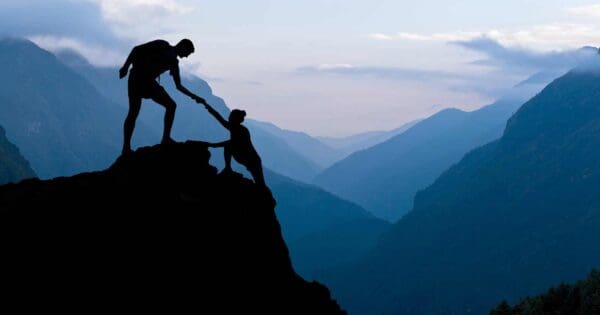
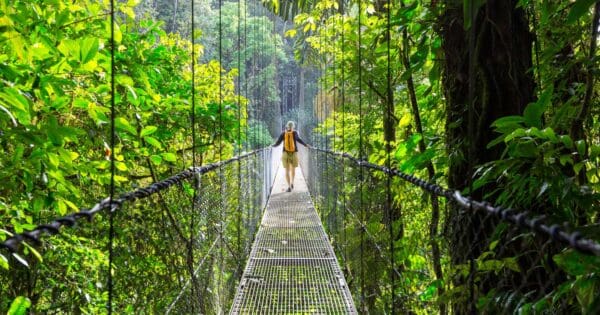




Chris Wells
For me, hiking and just being outdoors in nature has had a huge impact on my mental health. It’s one of the main reasons I love the outdoors. Sharing my story here in the hope it encourages others: https://www.trailhiking.com.au/about-darren-edwards/
Microdosing involves taking natural substances like shrooms not to trip but to help improve mental health/self esteem and also give relief from issues like BPD, panic attacks, chronic pains, Bipolar,PTSD, depression, anxiety and other mental disorders. MYCOHALL on Instagram gives the best guidance and products highly recommended because he ships discreetly.
https://www.instagram.com/MYCOHALL